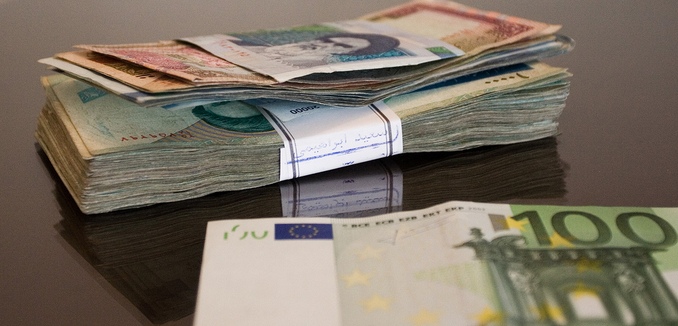Iranians “to a large extent have themselves to blame” for their economic difficulties because of their country’s corrupt financial system and support for terrorism, The New York Times editorial board wrote on Monday.
While Iran has largely complied with the nuclear-related aspects of the deal it reached with global powers last year, leading to the lifting of European sanctions, American sanctions due to Iran’s support for terrorism, ballistic missile tests, and human rights abuses remain in place. This should not be a surprise, the editorial pointed out, because “Iran knew that lifting all American sanctions was never part of the nuclear deal.”
This means American companies are still banned from doing business in Iran, except for trade in civil aviation, carpets and agricultural products. Also, Iran is still barred from using the American financial system, and its dollars, through which most international business is conducted. Many foreign banks who are free to engage with Iran hesitate to do so, fearing they will run afoul of American sanctions.
Before the nuclear deal, Iran was largely isolated from the international banking system. It has not kept up with strict new rules to prevent money-laundering and terrorist financing. Experts say Iranian banks are badly run, politicized and lack transparency — warning signs for risk-averse foreign banks. Iran’s warlike behavior in the region — supporting President Bashar al-Assad in Syria, arming Hezbollah and testing missiles — further discourages investment. As President Obama said recently, “Businesses want to go where they feel safe, where they don’t see massive controversy, where they can be confident that transactions are going to operate normally.” Iran can help itself by reforming its system and becoming a more constructive force in the region.
In the absence of choosing to reform its financial system and stop supporting terrorism, the current restrictions mean that the Islamic Republic will have to settle for smaller business deals that don’t involve using American currency, since Iran should continue “should be subject to sanctions when appropriate under United States law.”
The Times supported the the nuclear deal, so their latest op-ed can be seen as a rebuke to Iran’s government, which has been expressing its displeasure with the pace of its economic growth since the deal last year.
The governor of Iran’s central bank, Valiollah Seif, threatened to walk away from the nuclear deal if the United States did not give Iran access to the American financial system during a 90-minute speech in Washington last week. In response, Matthew Levitt, a former Treasury Department official and who now works at the Washington Institute for Near East Policy, wrote in The Wall Street Journal on Monday that “Iran seems to expect the Obama administration to provide benefits beyond those in the nuclear deal.” Levitt noted that Seif admitted that Iran has not changed how it does business, and added “that Iran has not changed is at the core of its problem.”
Iran’s behavior prompted Levitt to draw similar conclusions to The New York Times editorial board:
The bottom line is that Iran has yet to curb or stop the illicit conduct that makes it a pariah state and a financial risk. It enacted a law against terrorist financing last July, but that’s done little to calm banks’ fears because its government continues to support terrorism. Until those behaviors change, banks are likely to continue to see prohibitive reputational, regulatory, and other risks to doing business there. And the only country that can do anything about that is Iran.
[ Photo: Ivar Husevåg Døskeland / Flickr ]




